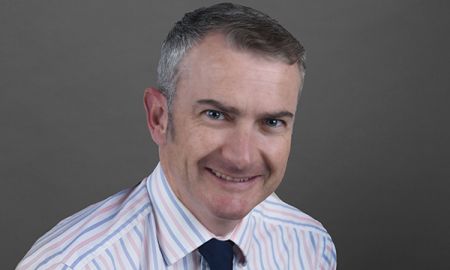
Jason Beedell
Director, Research


Director, Research
Click here to download the full update as a PDF
EC fails to agree 10-year re-authorisation of glyphosate – so could aim for five years
The European Commission is likely to propose a five-year authorisation period after its initial plan for a 10-year approval was not passed. A vote on a shorter extension could take place on 9th November, and may be supported by Germany, Italy and France, which all voted against the 10-year proposal. France seems critical in this – and it has said that a four-year extension would allow time to find alternatives to the pesticide, which it wants phased out. Reaction has, as ever, been mixed. Greenpeace said that the chemical should not be re-authorised, calling it the ‘asbestos of our generation’. The European Crop Protection Association criticised the delay in authorisation, saying it ignored the data. The European Parliament has said that the chemical should be phased out by 2022, adding that the current evidence and approval process is flawed.
Warning about massive fall in numbers of flying insects
New research from Germany nature reserves has found that the number of flying insects has fallen by 75% over the last 25 years, which the authors call alarming and potentially ecological Armageddon. Insects are important as they make up about two-thirds of life on earth and humans depend on them for pollination, waste recycling and pest control.
Various changes to CAP agreed in so-called Omnibus Regulation
The changes should now come into effect from 1 January 2018. The main changes are:
- Greening: Member States have greater flexibility in applying the rules.
- Active farmers: Member States can now decide whether they distinguish between active and non-active farmers.
- Young farmers: payments can be made for five years and Member States can increase them by up to 50%.
- Producer organisations: a wider range of producer organisations can plan production and negotiate delivery contracts on behalf of their members. Olive oil, beef and arable sectors can already do this.
Target to cut use of antibiotics in farm animals achieved two years early
The 27% fall in use since 2014 meets a government target set following the 2016 O’Neill Review on Antimicrobial Resistance. This is good news, and particularly that the use of antibiotics considered critically important for human health has also dropped. There is still scope to do more and the Responsible Use of Medicines in Agriculture alliance, which is an agricultural and food industry alliance, will set further targets.
EU remains committed to rules-based global trade
The EU has published a short paper on its philosophy and approach to trade, which will be interesting reading for the UK. The basis remains rules-based free and fair trade to generate jobs and income, but with controls to ensure that strategic interests are not compromised in terms of security and public order. The paper also proposes wider consultation on all EU trade agreements, including with civil society, trade unions, employers’ organisations, consumer groups and NGOs, to ensure that a wide range of perspectives are gathered and considered. This philosophy is already being applied – with the European Parliament saying that a trade agreement with Australia and New Zealand should not stop EU Member States from passing laws to protect human health, the environment or consumer protection standards.
What the CAP post-2020 could look like
A leaked draft of the European Commission’s proposals for the CAP, which is due to be published on 29 November, includes the following major changes:
- Capping of direct payments, with €60 – 100,000 mentioned, but with flexibility to avoid negative impacts on jobs and support for those that depend on farming for their incomes.
- A major overhaul of greening and cross-compliance. There is a strong hint that higher minimum environmental standards will be required in order to receive direct payments.
- Member States can’t top up direct payments (under Pillar 1), as it would undermine the internal European market if different countries made different levels of payments to their farmers. The long-term policy of convergence of support rates between Member States will continue.
- Greater scope for Member States to design their own policies – but they will have to demonstrate their impact, so more results driven.
- Increased trade with other countries, but recognising that some agricultural sectors cannot withstand full trade liberalisation and unfettered competition with imports.
The costs of compliance with environmental standards
It costs the average German farm around €350-370/ha/year to comply with standards on water, fertiliser, pesticides, animal husbandry, air quality and cross-compliance costs, according to research commissioned by one of the German farming unions (Bauernverband or DBV). The union claims that there are higher production standards in Europe than elsewhere in the world, which leads to higher costs, which should be debated when considering the CAP. Birdlife International criticised the report’s logic as flawed and said that it did farmers a disservice.
Increased protections against Xylella fastidiosa plant disease across Europe
The EC has strengthened movement requirements on high risk plants and required quicker responses to potential outbreaks of the disease, which is spread by insects, such as spittlebugs and leafhoppers, that feed on the water conducting tissues of plants. It affects trees such as oak, sycamore and maple, with the symptoms being leaf scorch, poor quality fruit and die back. It has devastated olive plantations in southern Italy and is killing plants and trees in areas across Europe. Defra has produced a guidance document on its Plant Health Information Portal.
RSA Food, Farming and Countryside Commission starts two-year inquiry
This is a two-year independent inquiry, funded by the Esmée Fairbairn Foundation, which will investigate how the UK can develop a safe food and farming system, a flourishing rural economy and a sustainable and accessible countryside. This is an interesting approach and will take into account what a range of organisations have proposed. It is chaired by Sir Ian Cheshire, who previously lead the Ecosystem Services Market Taskforce, which produced a useful report on natural capital and how businesses can contribute to and benefit from the environment.
Scotland tops progress in the UK in 2016
The Scottish Government has claimed that the Digital Scotland Superfast Broadband scheme is on track to hit its target of 95% of premises receiving fibre broadband by the end of 2017.